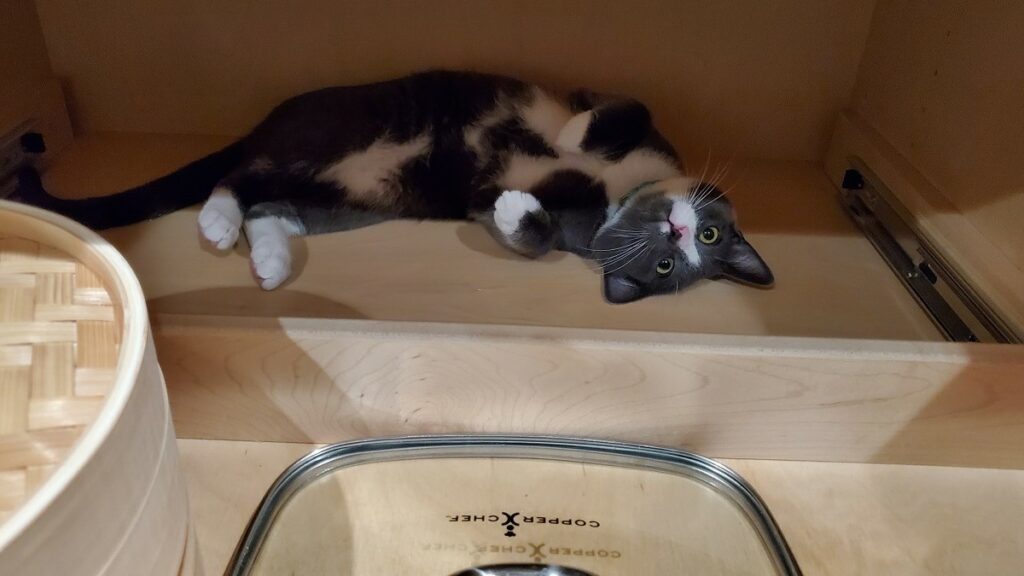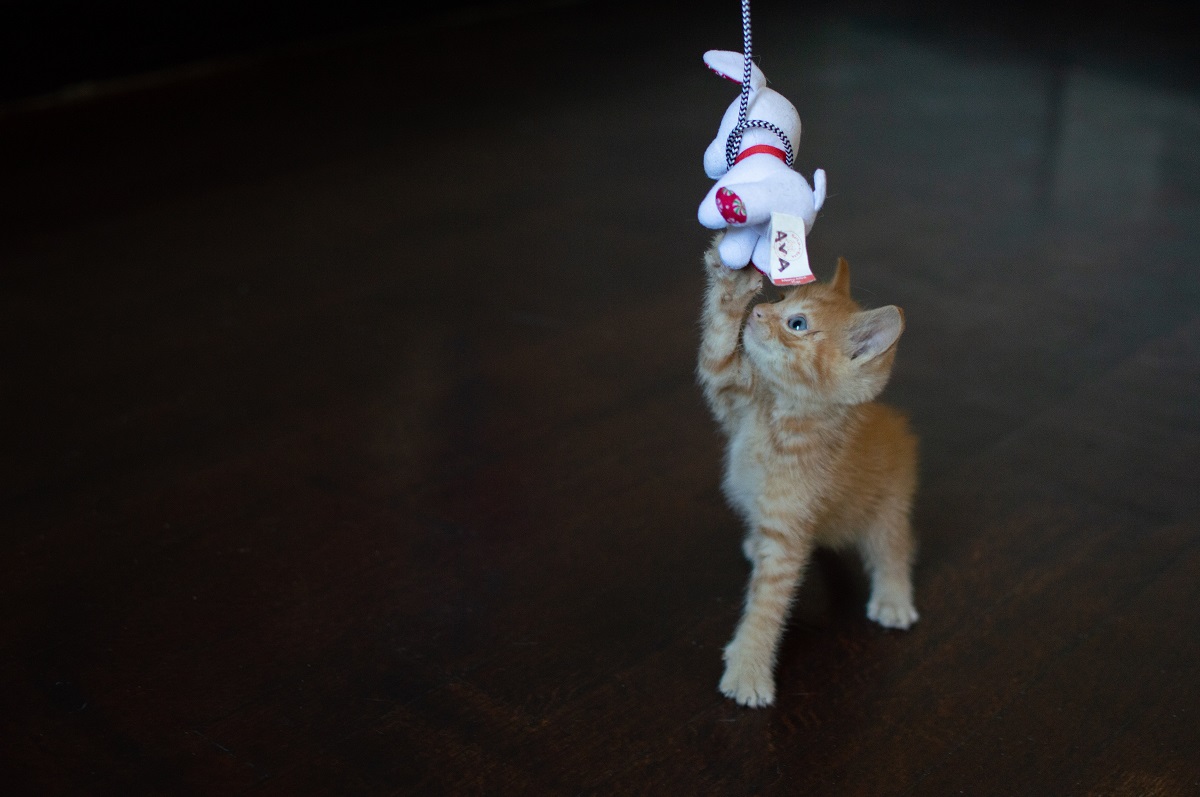If you’ve recently added a tiny, toe-attacking furball to your life, you’ve probably already learned one thing: kittens have energy to spare. And unless you plan to replace your entire sock collection weekly, it’s best to start channeling that energy into something a little more productive than sneak attacks.
Regular play sessions are essential for a kitten’s mental and physical development, not to mention your sanity. It’s not just about exercise. It’s about bonding, building trust, sharpening instincts, and preventing destructive behavior that comes from boredom.
Let’s explore how often you should be playing with your kitten, how long sessions should last, and how to make the most of your time together.
Why Play Is So Important for Kittens
Play is not optional. For kittens, play is how they learn to be cats. From as early as four weeks of age, kittens begin stalking, pouncing, chasing, and wrestling with their littermates. These are more than adorable antics. They’re practice sessions for real-life skills like hunting, defending territory, and gauging social cues.
Without enough play, kittens can become:
- Understimulated
- Frustrated or anxious
- Destructive or overly aggressive
- Prone to weight gain or lethargy
In other words, if you want a confident, well-adjusted adult cat, now is the time to invest in their daily play routine.
How Often Should You Play with a Kitten?
The short answer is: a lot more than you think.
Kittens under six months old need multiple play sessions a day, ideally between 3 to 5 sessions lasting 10 to 15 minutes each. Older kittens and young adult cats may benefit from at least two high-quality sessions per day, especially if they’re solo pets.
That doesn’t mean you need to be running around your house all day with a feather wand. Short bursts of play mimic a cat’s natural hunting rhythm; stalk, chase, pounce, rest. This makes playtime feel satisfying, rather than exhausting.
General guideline by age:
- 2–3 months: 5 short sessions per day
- 4–6 months: 3–4 sessions per day
- 7–12 months: 2–3 sessions per day
The goal isn’t to wear your kitten out completely. It’s to give them a healthy outlet for their energy so they don’t invent one on their own (like knocking your coffee mug off the counter just to see what happens).
What Makes a Good Play Session?
A successful play session mimics hunting behavior. This means you should be using toys that let your kitten stalk, chase, catch, and “kill” their prey.
Best toys for interactive play:
- Wand toys with feathers or string
- Small crinkle balls
- Toy mice
- Ribbon or fabric strips on a stick
- Motorized or motion-activated toys (for supervised use)
Rotate toys often to keep them exciting, and try to end each session with a satisfying “catch.” If your kitten pounces and wins, they’ll feel accomplished and more likely to rest peacefully afterward.
Tip: Avoid using your hands as toys. It might be funny when they’re small, but once those tiny teeth grow up, you’ll regret teaching them that fingers are fair game.
What About Solo Play?
If you can’t be home all day (and most of us can’t), it’s helpful to set up opportunities for independent play. This won’t replace bonding time with you, but it will keep your kitten mentally stimulated between sessions.
Set up:
- Puzzle feeders with treats
- Balls that rattle or light up
- Cat tunnels
- Paper bags or cardboard boxes
- Cat trees and window perches
Anything that gets them climbing, exploring, or batting something around is a win.

Look, Dad! I just found the best hide-and-seek spot ever! It’s like a secret playground just for me! My little paws are exploring every corner, and I’m ready to surprise you with my stealthy kitten moves! Let’s play a game of hide-and-seek! #KitchenCabinetExplorer #HideAndSeekChampion #PawsInPots #FurryExplorer #KittyHideout
Winston
How to Adjust as Your Kitten Grows
As your kitten grows into a more independent cat, their play needs will shift. They’ll still need regular engagement, especially if they live in a low-stimulation environment, but the frequency may decrease slightly. Some cats even develop preferred times of day when they like to play.
Keep in mind:
- Some adult cats stay playful for life
- Others may need a little encouragement
- Play remains important for weight control, mental sharpness, and emotional health
The best way to figure out your cat’s ideal schedule is to experiment with different times and track when they’re most responsive.
Common Mistakes to Avoid
1. Playing too little
A kitten that seems restless, aggressive, or overly attached might just need more structured play.
2. Ending play abruptly
Always wind down sessions gently so your kitten doesn’t stay in “hunting mode” and turn their energy on you.
3. Using the same toy every time
Variety keeps things interesting. Rotate toys every few days to keep your kitten engaged.
4. Skipping play on busy days
Even a five-minute play session is better than none. Think of it like brushing your teeth. It doesn’t take long, but skipping it shows over time.
Final Thoughts: Playtime Is How You Shape a Happy Cat
Playing with your kitten multiple times a day is one of the best things you can do for their development. It helps them burn energy, build confidence, and learn to interact with the world in healthy, appropriate ways.
It also gives you the chance to bond, build trust, and reinforce that you’re not just the one who fills the food bowl. You’re also the bringer of joy.
So keep a wand toy nearby, prepare to be stalked while walking to the kitchen, and embrace the beautiful chaos of kitten play. You’re raising a future adult cat, one pounce at a time.
Sources:
Kitten Development and Play https://www.icatcare.org/advice/kitten-play-and-development
Feline Enrichment Guide https://www.humanesociety.org/resources/enriching-your-cats-life
Healthy Play Routines https://vcahospitals.com/know-your-pet/kitten-behavior-and-training
Interactive Play for Cats https://www.petmd.com/cat/behavior/interactive-play-your-cat
Recent Posts
Your Cat Might Be a Furry Little Healer… or at Least a Fuzzy Alarm System If you’ve ever had your cat suddenly become extra clingy when you’re under the weather, you’re not alone. From...
Cats are experts at hiding things, socks under furniture, their disdain for your playlist, and, unfortunately, symptoms of illness. In the wild, showing weakness could make them a target, so even...


